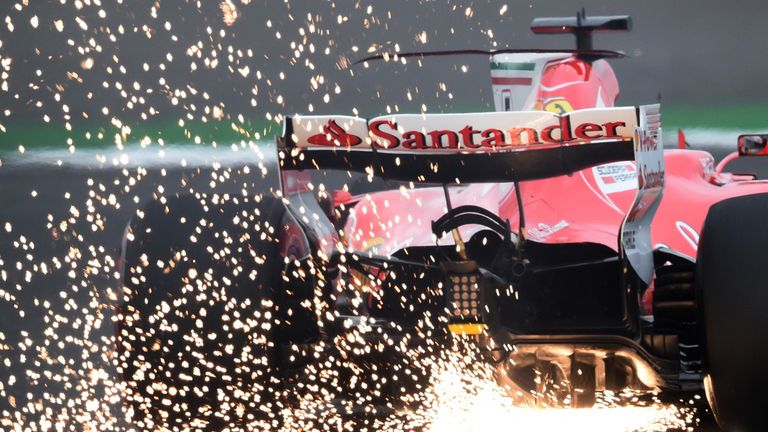F1 has reached a 'crossroads', says Red Bull's Christian Horner
Red Bull boss on how he wants 2021 engine negotiations to pan out
Thursday 10 August 2017 16:50, UK
Red Bull chief Christian Horner believes Formula 1 is a "crossroads" and must make a strong decision on how the future of the sport will look.
Talks have been ongoing between F1's stakeholders since the start of the year over the blueprint for the sport's next engine formula, which will begin in 2021.
Debate over F1's future direction has heightened in recent weeks after Mercedes, F1's world champions, announced they would enter a team in the all-electric Formula E series from 2019. Porsche, linked with an F1 move in previous years, will do likewise and join a manufacturer roster which already includes Renault, Jaguar and Citroen.
Horner, a long-time critic of the cost and sound of the turbo hybrid engines introduced into F1 in 2014, says the sport has some big decisions to make in the forthcoming months and wants sporting competition between drivers and teams to be prioritised in post-2020 regulations.
"I really hope that for Formula 1's sake there is a strong decision made that isn't a compromise. The problem with a compromise is that it doesn't suit anybody," said Horner.
"We have seen all these manufacturers now signing up to Formula E - that is where the technology belongs and where the electric cars belong. Formula 1 is really at a crossroads because the power unit that is picked for 2021 onwards is probably going to have between an eight and 10-year life.
"What are people going to be driving on the roads in 2030? Will they be autonomous? Will they be electric? If you listen to our Government, they're saying they certainly will be [electric].
"So Formula 1 is at a crossroads where it has to decide what its future is. Is it outright racing? Is it combustion engines? Is it man and machine wanting to know who the best driver, with the technology perhaps playing a slightly lesser role?
"I certainly hope the regulations that are brought in post-2020 bring those aspects to the forefront and that it is about the driver. Yes, the team should absolutely make the difference, but it shouldn't be a power unit-dominated formula, which is pretty much what we have today."
Ross Brawn, F1's sporting chief, said recently that while a return to normally-aspirated engines was not on the table - a power unit formula which combined popular elements from the sport's past with cutting-edge technology should be achievable.
Red Bull's Horner reckons F1 "should go back to basics in many respects" although acknowledges Brawn and F1's new owners have a balance to strike in setting the outline for the sport's future.
"I sense that the model for Chase [Carey] and the Liberty guys is all about putting on a great show, great events, producing great content, which means wheel-to-wheel racing, making the drivers the stars and getting their characters across, and using all the media platforms to do that," added Horner. "And that sort of goes against the grain of a highly technically-advanced formula.
"Now, I guess, that is conflict that Ross [Brawn] is charged with. He's poacher turned gamekeeper and he's going to have to look at some of the fundamentals and it's a matter of having the courage to make the big decisions."
Don't miss the Belgian GP live on Sky Sports F1 on August 27 - lights out for the race is at 1pm. Check out all the ways to watch F1 on Sky Sports for subscribers and non-subscribers - including a NOW TV day pass for £6.99!
If you are using skysports.com you can comment below to get involved in the debate, but please adhere to our House Rules. If you wish to report any comment, simply click on the down arrow next to the offending comment and click 'Report'.




